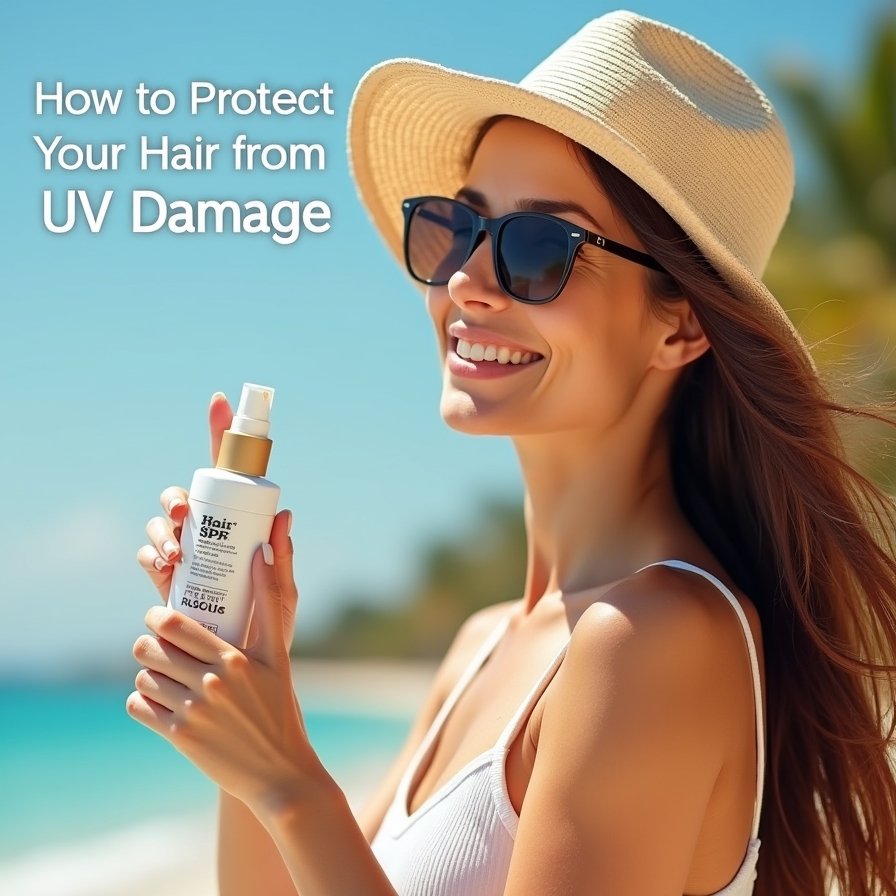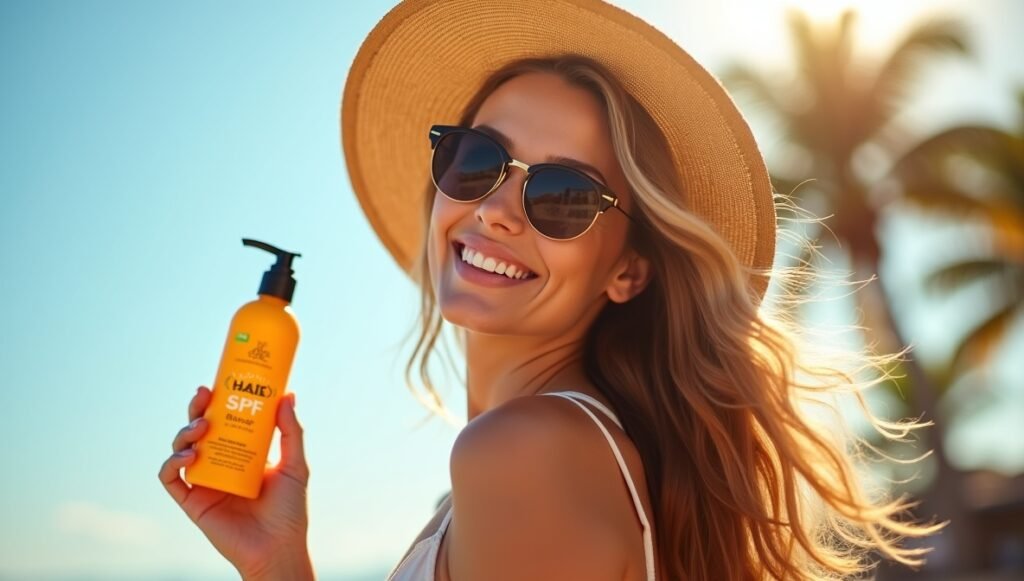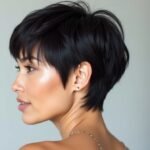When we think of sun protection, our minds instinctively turn to skin — sunscreen, sunblock, SPF moisturizers, and UV-protective clothing. Yet, we often overlook another vital part of the body that faces daily exposure to the sun: our hair and scalp. While your skin may be well-defended, your strands are likely left vulnerable to the harmful effects of ultraviolet (UV) radiation.
It’s time to shift the narrative. Just like your skin, why your hair needs SPF protection to remain healthy, resilient, and vibrant. In this article, we’ll explore why sun protection for your hair is essential, how UV damage affects hair health, and the best ways to integrate SPF into your hair care routine.
Understanding UV Radiation and Its Impact on Hair
Ultraviolet radiation from the sun consists primarily of UVA and UVB rays. While UVB rays are responsible for burning the skin’s outer layers, UVA rays penetrate more deeply and cause long-term damage. Both types of radiation can significantly affect the integrity of your hair and scalp.
Hair is composed of keratin, a fibrous protein that gives hair its strength and elasticity. Prolonged sun exposure breaks down this protein structure, leaving strands weakened, dry, and brittle. More specifically, UV rays can:
- Degrade hair proteins and lipids, leading to weakened hair fibers
- Break down melanin, the pigment responsible for natural and dyed hair color
- Dry out the hair shaft, removing natural oils that maintain moisture and shine
- Irritate or burn the scalp, especially in areas where the hair is thin or parted
These effects are cumulative, meaning damage builds over time — particularly for those who spend long hours outdoors or live in sun-intense climates.
Signs of Sun-Damaged Hair
Recognizing the symptoms of sun-damaged hair can help you take proactive steps toward protection and recovery. Common indicators include:
- Dryness and lack of luster
- Faded or brassy hair color
- Split ends and increased breakage
- Frizz and unmanageability
- A sunburned or flaking scalp
If your hair feels more brittle after a beach vacation or your color treatment fades faster in the summer, sun exposure is likely a contributing factor.
Why Your Hair Needs SPF — Just Like Your Skin
We understand the importance of sunscreen in preventing premature aging, sunburn, and skin cancer. Yet, the conversation about SPF for hair remains relatively niche. Here’s why it shouldn’t be:
1. To Preserve Hair Health and Structure
UV rays break down the keratin structure of hair, reducing its strength, elasticity, and resilience. SPF-infused hair products create a protective barrier, helping maintain softness and prevent protein loss.
2. To Prevent Color Fading
Whether your hair is natural or dyed, UV exposure accelerates color degradation. Sunlight oxidizes melanin and artificial pigments, resulting in dullness, discoloration, or brassiness — particularly in blonde, red, or color-treated hair.
3. To Protect the Scalp
The scalp is skin — and therefore subject to sunburn, irritation, and even skin cancer if left unprotected. Areas with thinning hair or visible part lines are especially vulnerable.
4. To Slow Down Signs of Aging
UV exposure causes oxidative stress that not only affects the skin but also prematurely ages the hair shaft. Hair becomes thinner, loses density, and becomes more fragile over time.
Who Needs Hair SPF the Most?
While all hair types benefit from sun protection, certain individuals are at greater risk:
- Color-treated or bleached hair: Already chemically processed and more porous
- Curly or textured hair: Naturally drier and more vulnerable to protein loss
- Fine or thinning hair: Exposes more of the scalp to direct sunlight
- Outdoor enthusiasts: Frequent sun exposure accelerates damage
How to Protect Your Hair from UV Damage

1. Use Hair Products with SPF or UV Filters
The most direct solution is incorporating leave-in sprays, creams, or serums that contain SPF or UV-filtering ingredients. Look for products labeled with UV protection or ingredients like:
- Benzophenone-4
- Ethylhexyl Methoxycinnamate
- Titanium Dioxide
- Zinc Oxide
- Antioxidants like Vitamin E and Green Tea Extract
These filters either reflect or absorb UV rays, shielding the hair shaft and scalp.
2. Wear Physical Barriers
Wide-brimmed hats, scarves, or caps made of UPF-rated fabric can block up to 98% of UV radiation. For those with thinning or parted hair, physical coverage is especially critical.
3. Style Smart
Wearing protective hairstyles such as buns, braids, or updos reduces surface exposure to the sun. Less exposed hair means less UV damage.
4. Avoid Peak Sun Hours
Whenever possible, limit direct sun exposure between 10 a.m. and 4 p.m., when UV intensity is at its highest.
5. Rinse and Replenish Post-Sun
After sun exposure, rinse hair thoroughly to remove salt, chlorine, and sweat. Follow with a deep conditioning mask to restore hydration and nourishment.
6. Use Antioxidant-Rich Hair Products
Antioxidants neutralize free radicals created by UV rays. Incorporating products with green tea, argan oil, or vitamins C and E can help minimize long-term damage.
Are There Natural Alternatives?
Some natural oils like coconut oil, avocado oil, and red raspberry seed oil offer mild UV protection, but their SPF values are inconsistent and significantly lower than dedicated SPF products. While they can provide a barrier and add moisture, they should not be relied on as standalone sun protection.
Conclusion: Make Hair SPF a Daily Habit
We’ve long understood the importance of sun protection for our skin — now it’s time to give our hair and scalp the same attention. UV rays don’t just tan or burn the skin; they degrade the health and appearance of your strands over time.
By integrating SPF into your hair care regimen, you’re not only preventing dryness, color loss, and breakage — you’re investing in the long-term health of your hair and scalp.
So the next time you reach for your sunscreen, don’t stop at your shoulders. Protect your strands — because your hair needs SPF just as much as your skin.



